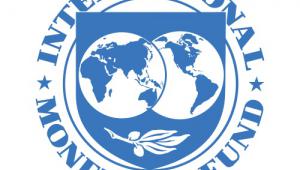By Richard Johnstone | 4 November 2013
The International Monetary Fund's interest in fiscal transparency ‘waned’ ahead of the financial crisis, a senior figure at the fund has admitted.
Richard Hughes, head of the public financial management division in the IMF’s fiscal affairs department, said the fund's oversight of fiscal transparency dated from the Asian financial crisis of the late 1990s.
However, speaking at the Open Government Partnership on October 31, he said: ‘The truth is that in the recent past our interest in transparency waned, and certainly through the mid-2000s.’
He added that this was not only true of the IMF. ‘I think it’s fair to say that governments, markets and others really lost interest in transparency as countries were doing well, and people slightly took their eye off the ball.’
However, the 2008 financial crisis underlined the importance of fiscal transparency both to government sustainability and the quality of life for citizens, Hughes said.
An IMF study has found that, in the ten countries most affected by the crisis, more than a quarter of the increase in government debt was as a result of governments’ ‘inadequate understanding’ of their own finances.
‘So that was nothing to do with collapsing banks, it was nothing to do with wider economic developments, it was to do with things that the government should have known about its own finances which remained hidden until the crisis hit,’ Hughes said.
Such a finding illustrated that there was not enough fiscal transparency, including in developed countries. In response, the IMF has developed a new policy on fiscal transparency, accountability and risk to learn the lessons from the crisis, he said.
Among the changes, the new policy will place a greater focus on reported outputs, as opposed to procedures, because Hughes said many countries were able to show the plans on paper that did not stand up in the crisis.
It has also updated fiscal transparency principles, including changes to the provision of balance sheet information in country’s financial reporting, the frequency of fiscal reporting and disclosure and management of contingent liabilities. There is also revised fiscal oversight of sub-national entities such as councils and public corporations.
‘As part of this paper, we drew some lessons from our experience in trying to promote fiscal transparency around the world, both the successes we’ve had and also the failures, and we set out an agenda of how we want to improve our own role in the fiscal arena,‘ Hughes said.
‘We have learned a lot form the recent crisis about what really is good practice and we wanted to reflect that in the code.’












